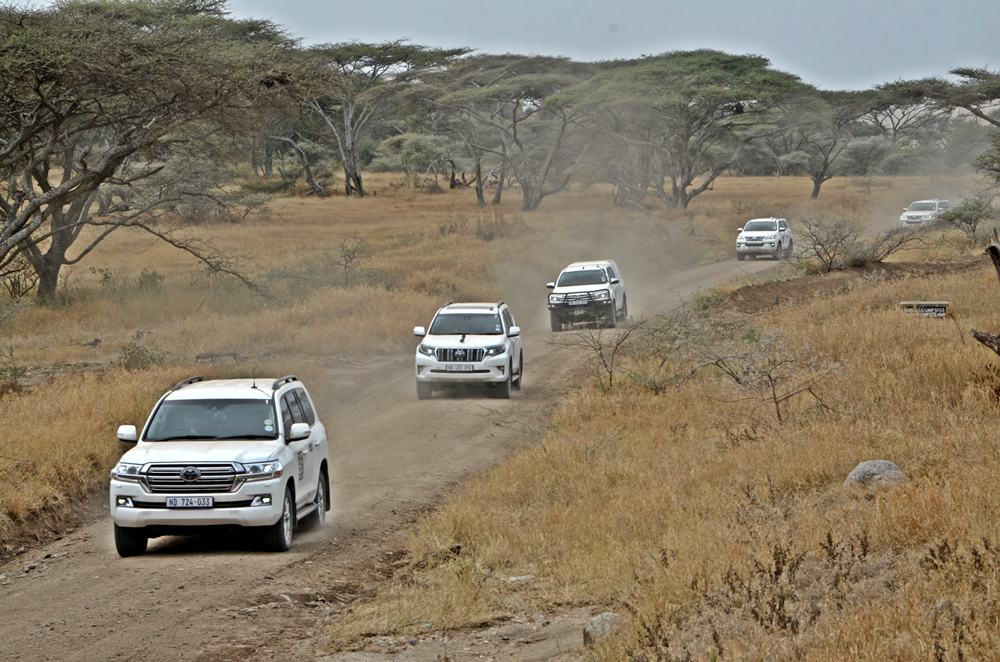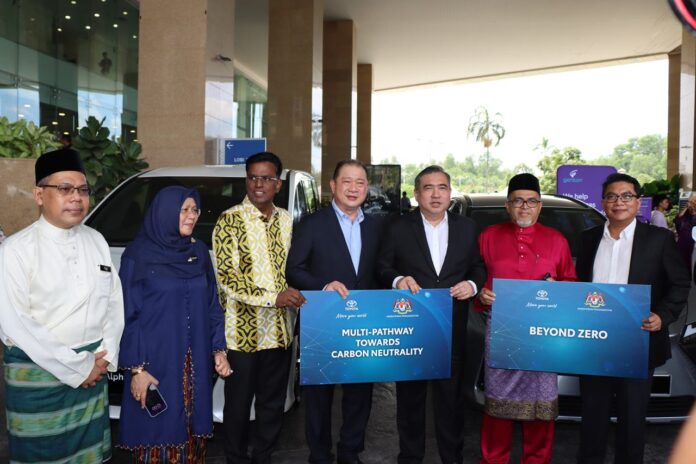‘Genchi Genbutsu’ is a Japanese term which, roughly translated, means ‘go to the source and see for yourself’. Widely adopted in lean production in many industries today, Toyota is credited with having originated the practice which is one of the 13 pillars of the Toyota Production System.
The basic idea of Genchi Genbutsu is that one must go to the place where there is an issue and personally see or experience it to get a proper understanding. It is to discourage perceptions and decision-making based on just reports from other parties.

While often mentioned as an important practice in industry, Genchi Genbutsu can also apply in other activities in life, especially for those who make decisions and policies. They should personally see, hear and even experience the subject or issue they are involved in to form the right conclusions that will guide their actions.
Collaboration with government
In this context, UMW Toyota Motor (UMWT) is applying the practice with its collaboration with the Ministry of Transport (MoT). The company, a joint-venture between UMW and Toyota Motor Corporation (and now part of the Sime Group), has provided a fleet of electrified vehicles to the ministry to assist in its public policy development.
This initiative will enable the MoT to have a deeper understanding of electrified mobility technologies and evaluate the real-world practicality, performance and benefits in daily operations. By ‘living’ with EVs, they will also get a clearer idea of the charging station infrastructure readiness in Malaysia. All this will give MoT officers valuable insights to guide them in future planning and policymaking.
![Lexus RZ EV [2024]](https://www.motaauto.com/wp-content/uploads/2025/04/Lexus-RZ-EV-2024.jpeg)
The fleet consists of 5 advanced electrified vehicles – the Alphard, Camry and Corolla which are hybrid electric vehicles, and the bZ4X and Lexus RZ which are fully electric.
This partnership reflects UMW Toyota’s belief that achieving carbon neutrality requires engagement at every level, from individual consumers to national institutions. By aligning with the National Energy Policy 2022–2040 and the National Energy Transition Roadmap, the initiative highlights how private-sector innovation can help translate national ambitions into practical, real-world outcomes.
“Malaysia’s journey to net-zero emissions by 2050 requires collaboration and action from all sectors,” said Datuk Ravindran K., President of UMW Toyota Motor. “Our support is beyond formality — it enables policymakers to experience the effectiveness of electrified vehicles first-hand. Toyota’s Multipathway approach is inclusive, practical, and tailored to Malaysia’s needs. This ensures that no one is left behind as we move toward a cleaner and more sustainable future.”
Toyota’s Multipathway approach
Toyota’s Multipathway approach offers a practical and realistic approach to achieving the goal of carbon neutrality in the long-term. It encompasses various forms of electrified mobility which will be suitable for different countries with different economies and infrastructure readiness for electrification.
![Toyota Corolla Cross HEV [2024]](https://www.motaauto.com/wp-content/uploads/2025/04/Toyota-Corolla-Cross-HEV-2024.jpeg)
Hybrid electric vehicle (HEV) technology is one approach and it is technology which Toyota pioneered for mass production in the late 1990s. HEV technology delivers practical, scalable solutions that meet real-world needs. While full electrification remains a long-term goal, HEVs offer a faster and accessible pathway to reduce emissions without placing excessive pressure on current infrastructure or consumer behaviour.
“Hybrid technology continues to be a critical enabler in Toyota’s electrification strategy, especially for markets like Malaysia,” said Mohd. Shamsor Mohd. Zain, Executive Director of UMW Toyota Motor. “It offers immediate reductions in emissions without the need for sweeping infrastructure changes. This makes it ideal for building mass-market confidence while paving the way toward full electrification.”
UMWT’s ongoing engagement with government, industry and the public is part of a larger movement to build a cleaner, more connected mobility ecosystem for Malaysia. From product deployment to policy dialogue and public education, UMWT continues to play a catalytic role in advancing the nation’s shift toward a sustainable transport future.



